THE ABYSSINIANS / “Satta Massagana” (1976 Version)
"Satta Massagana," recorded at Coxson Dodd's Jamaica Recording Studio in 1969, has been referred to as ‘reggae's national anthem.’ The recording session that yielded "Satta" was arranged and financed independently and clearly marked a turning point for reggae—lyrically, rhythmically, and spiritually. —from “The Abyssinians” by Carter Van Pelt http://niceup.com/artists/abyssinians
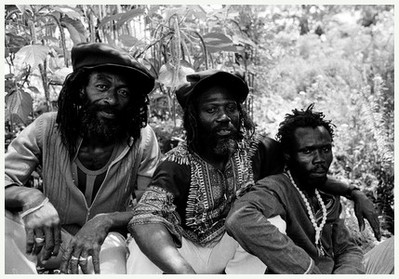 It can be argued that the reggae sub-genre we now call ‘Roots’ began in March of 1969 when Bernard Collins, Donald Manning, and Linford Manning, collectively known as the Abyssinians, recorded “Satta Massagana,” an adapted version of a song called “Happy Land” which was written and performed by Donald and Linford’s brother Carlton. The heavy bass-and-drum groove coupled with the passionately sung and stridently Afrocentric lyrics became a virtual template for hundreds, if not thousands, of like-minded musicians to follow. The 1969 version is the first, but the Abyssinians recorded “Satta Massagana” (the title is Amharic for ‘give thanks’) several times, including a 1976 version, the centerpiece of their classic album of the same name.
It can be argued that the reggae sub-genre we now call ‘Roots’ began in March of 1969 when Bernard Collins, Donald Manning, and Linford Manning, collectively known as the Abyssinians, recorded “Satta Massagana,” an adapted version of a song called “Happy Land” which was written and performed by Donald and Linford’s brother Carlton. The heavy bass-and-drum groove coupled with the passionately sung and stridently Afrocentric lyrics became a virtual template for hundreds, if not thousands, of like-minded musicians to follow. The 1969 version is the first, but the Abyssinians recorded “Satta Massagana” (the title is Amharic for ‘give thanks’) several times, including a 1976 version, the centerpiece of their classic album of the same name.
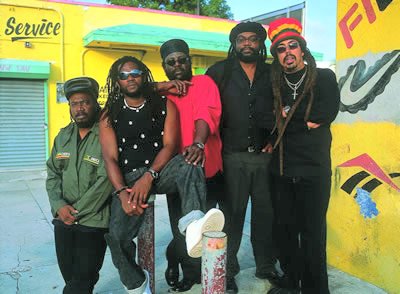 That same year, two other reggae artists recorded covers of “Satta.” (Actually, it’s easily possible that ten or twenty or more reggae artists versioned “Satta” that year, but we’re only going to discuss two of them.) The first is Third World, the second is Johnny Clarke. The two versions couldn’t be more dissimilar. Third World’s version has the feel of a long-playing epic, and as such, it both begins and ends with appropriate bombast—gongs, Hammond B3 chords, extended intros and outros, cricket noises, the works. We’re nearly two minutes in before they even start singing. This song is a perfect example of what makes Third World’s early recordings so enjoyable. Their flawless harmony and atmospheric instrumentation transform the Abyssinians’ song into a soothing yet still passionate experience. But Third World’s version of “Satta” is also a perfect example of why hardcore Jamaican fans never completed accepted the band.
That same year, two other reggae artists recorded covers of “Satta.” (Actually, it’s easily possible that ten or twenty or more reggae artists versioned “Satta” that year, but we’re only going to discuss two of them.) The first is Third World, the second is Johnny Clarke. The two versions couldn’t be more dissimilar. Third World’s version has the feel of a long-playing epic, and as such, it both begins and ends with appropriate bombast—gongs, Hammond B3 chords, extended intros and outros, cricket noises, the works. We’re nearly two minutes in before they even start singing. This song is a perfect example of what makes Third World’s early recordings so enjoyable. Their flawless harmony and atmospheric instrumentation transform the Abyssinians’ song into a soothing yet still passionate experience. But Third World’s version of “Satta” is also a perfect example of why hardcore Jamaican fans never completed accepted the band.
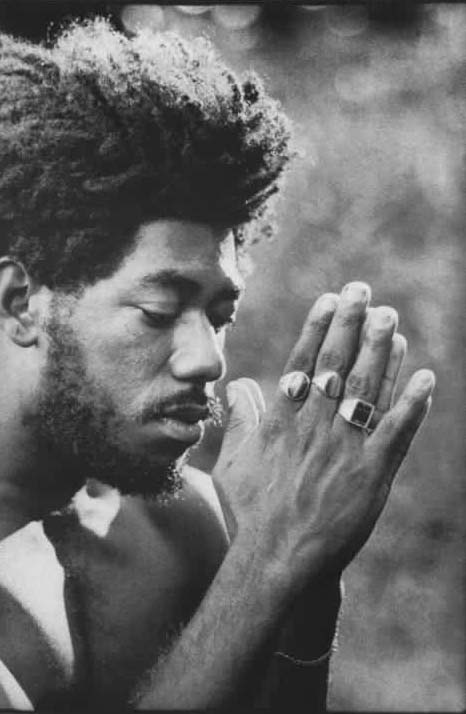 In the attempt to explain why many Roots fans dislike Third World—even their early non-commercial albums—I could write several paragraphs about the various methodologies of rhythm and bass, about smooth versus rough vocal styles, about institutional music education versus self-training and the like. Or, this being a musicblog, I could just direct you to the first two seconds of Johnny Clarke’s version of “Satta” during which the opening drum roll sounds as heavy and sudden as a load of bricks tumbling onto asphalt. Forget intros, Clarke doesn’t even wait a full bar before he breaks into the opening lyric. His version runs roughly half as long as Third World’s does and is as basic as basic gets. There’s a banging, percussion-heavy version of the “Satta” riddim and Clarke wailing the lyrics all by his lonesome. Get in, get out. The end.
In the attempt to explain why many Roots fans dislike Third World—even their early non-commercial albums—I could write several paragraphs about the various methodologies of rhythm and bass, about smooth versus rough vocal styles, about institutional music education versus self-training and the like. Or, this being a musicblog, I could just direct you to the first two seconds of Johnny Clarke’s version of “Satta” during which the opening drum roll sounds as heavy and sudden as a load of bricks tumbling onto asphalt. Forget intros, Clarke doesn’t even wait a full bar before he breaks into the opening lyric. His version runs roughly half as long as Third World’s does and is as basic as basic gets. There’s a banging, percussion-heavy version of the “Satta” riddim and Clarke wailing the lyrics all by his lonesome. Get in, get out. The end.
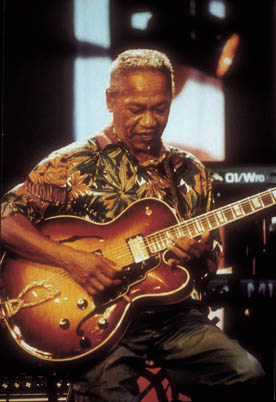 Ernest Ranglin’s instrumental version of “Satta” is at least the second time he’s recorded the Abyssinians’ classic. Back in the mid-Seventies, Ranglin recorded a version he called “Ranglin Satta,” and it’s nice. Not quite as nice as this 1996 version however, in which Ranglin (without so much as a single word) brings so much emotion and delicacy to the melody that it’s virtually heartbreaking.
Ernest Ranglin’s instrumental version of “Satta” is at least the second time he’s recorded the Abyssinians’ classic. Back in the mid-Seventies, Ranglin recorded a version he called “Ranglin Satta,” and it’s nice. Not quite as nice as this 1996 version however, in which Ranglin (without so much as a single word) brings so much emotion and delicacy to the melody that it’s virtually heartbreaking.
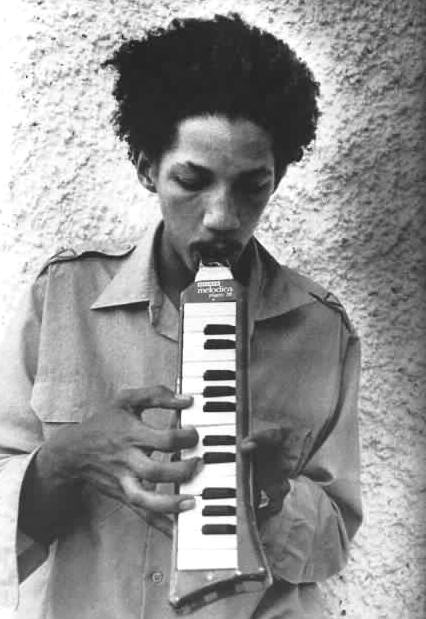 This being reggae, I have to include at least one dub. There are many to choose from, but I’m going with Augustus Pablo’s, which Pablo calls, simply, “Satta.” I love the minimalist structure of this dub. It begins with one measure of those well-known horn lines, then the horns echo out and we settle into a stripped-down, repetitive version of the “Satta” riddim adorned by not much more than Pablo’s occasional and abstract melodica sketches.
This being reggae, I have to include at least one dub. There are many to choose from, but I’m going with Augustus Pablo’s, which Pablo calls, simply, “Satta.” I love the minimalist structure of this dub. It begins with one measure of those well-known horn lines, then the horns echo out and we settle into a stripped-down, repetitive version of the “Satta” riddim adorned by not much more than Pablo’s occasional and abstract melodica sketches.
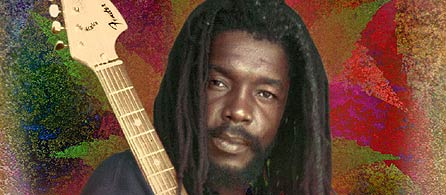 The last track is the most odd. I don’t know the history of this recording, maybe someone out there who does can help clue the rest of us in. It’s Peter Tosh using the “Satta” riddim (and it sounds like the original 1969 one) as a backdrop to excoriate Marco Polo, Alexander ‘So-Called’ The Great, Christopher Columbus and eight other historically-significant ‘explorers’ for among other offenses, “robbing and raping Africa,” “stealing Black people out of Africa,” and “killing over 50 million Black people without a cause.” The mock courtroom proceedings continue uninterrupted despite the whining and complaining of the various accused. As Tosh’s parody of ‘our colonial judiciary shit-stem’ nears its end, Tosh announces, “Each of you must be hung by the tongue.” The whining grows louder. Tosh, of course, is unmoved. “No appeal will be accepted,” he says. “Court adjourned!”
One last thing, I don’t want to give the impression that the Abyssinians were anything like one-hit wonders. It isn’t just the one song, the entire Satta Massagana album is classic material. Songs like “Y Mas Gan,” “African Race” and “Declaration Of Rights” are every bit the equal of better-known Roots classics like “Two Sevens Clash,” “Slavery Days” or “Get Up, Stand Up.” (And in fact, Tosh’s lyrics for “Get Up, Stand Up” are inspired by an early version of “Declaration Of Rights.”) If you consider yourself a fan of Roots reggae music, The Abyssinians’ Satta Massagana belongs in your CD collection.
—Mtume ya Salaam
Tracks:
- The Abyssinians – “Satta Massagana” from Satta Massagana
The last track is the most odd. I don’t know the history of this recording, maybe someone out there who does can help clue the rest of us in. It’s Peter Tosh using the “Satta” riddim (and it sounds like the original 1969 one) as a backdrop to excoriate Marco Polo, Alexander ‘So-Called’ The Great, Christopher Columbus and eight other historically-significant ‘explorers’ for among other offenses, “robbing and raping Africa,” “stealing Black people out of Africa,” and “killing over 50 million Black people without a cause.” The mock courtroom proceedings continue uninterrupted despite the whining and complaining of the various accused. As Tosh’s parody of ‘our colonial judiciary shit-stem’ nears its end, Tosh announces, “Each of you must be hung by the tongue.” The whining grows louder. Tosh, of course, is unmoved. “No appeal will be accepted,” he says. “Court adjourned!”
One last thing, I don’t want to give the impression that the Abyssinians were anything like one-hit wonders. It isn’t just the one song, the entire Satta Massagana album is classic material. Songs like “Y Mas Gan,” “African Race” and “Declaration Of Rights” are every bit the equal of better-known Roots classics like “Two Sevens Clash,” “Slavery Days” or “Get Up, Stand Up.” (And in fact, Tosh’s lyrics for “Get Up, Stand Up” are inspired by an early version of “Declaration Of Rights.”) If you consider yourself a fan of Roots reggae music, The Abyssinians’ Satta Massagana belongs in your CD collection.
—Mtume ya Salaam
Tracks:
- The Abyssinians – “Satta Massagana” from Satta MassaganaThis entry was posted on Sunday, April 2nd, 2006 at 1:11 am and is filed under Classic. You can follow any responses to this entry through the RSS 2.0 feed. You can leave a response, or trackback from your own site.
7 Responses to “THE ABYSSINIANS / “Satta Massagana” (1976 Version)”
April 2nd, 2006 at 11:20 am
This was my first experience with the Abyssinians and my first hearing Satta Massagana, which is obviously a classic. Soulfilling and timeless. I gotta get more.
April 2nd, 2006 at 2:38 pm
I remeber hearing the Satta Massagana rhythm behind a lot of roots.
April 2nd, 2006 at 4:31 pm
i first heard satta when the movie rockers first came out. it still is awonderful, powerful piece of music
April 3rd, 2006 at 7:59 pm
Satta, is the true embodiment of reggae, spiritual, reflective, passive yet aggressive. A monumental tune that continues to be a endemic upon each listen. A song you never tire of as its timeless melody leaves a lasting imprint in your soul.
April 8th, 2006 at 1:19 am
Not sure what you’re looking for on the Tosh recording, but it has similarities to Prince Buster’s “Judge Dread.” Incidentally, that song was a response to Derrick Morgan’s “Tougher Than Tough,” and Peter Tosh later recorded a song called “The Toughest.”
May 5th, 2010 at 11:53 am
[…] rs i suppose i chalked it up to that ol’ wacky jamaican creativity or assumed it was amharic or something. recorded in 1978, the song foreshadows reggae’s embrace of […]
Leave a Reply
| top |